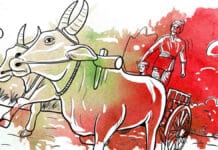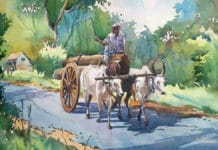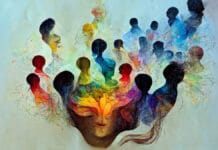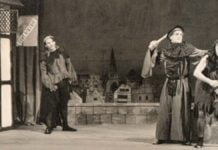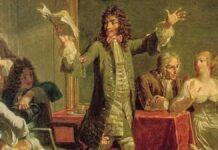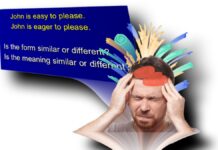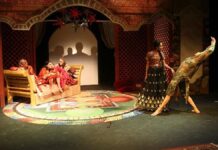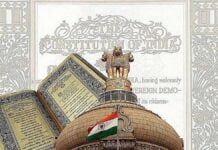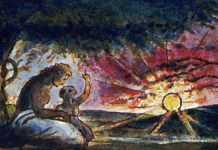The Second World War, spanning from 1939 to 1945, was a cataclysmic event that irrevocably altered the course of human history. It left an indelible mark on the world, profoundly affecting every aspect of life, including literature. The enormity of the conflict, its global scale, and the unprecedented horrors experienced by both soldiers and civilians alike inspired a vast body of literary works that reflect the human condition in times of extreme adversity.
The war served as a crucible for writers, forcing them to confront the darkest aspects of humanity and to grapple with the profound questions about existence, morality, and the human condition. The immense suffering, loss, and upheaval experienced by millions became a fertile ground for literary exploration. The war offered a stark contrast to the optimism and progress of the interwar period, forcing writers to re-evaluate their assumptions about society and the human condition.
The Rise of War Poetry
War poetry during the Second World War continued to reflect the soldier’s experience, a legacy from World War I poets like Wilfred Owen and Siegfried Sassoon. Poets such as Keith Douglas, Randall Jarrell, and Henry Reed produced poignant works that conveyed the brutality, fear, and absurdity of war. Keith Douglas’s Vergissmeinnicht and Randall Jarrell’s The Death of the Ball Turret Gunner are notable examples that vividly depict the stark and often tragic realities of combat.
Fiction and the War Experience
The war novel became a significant genre, offering more profound insights into the psychological and emotional impact of the war on individuals. Works like Catch-22 by Joseph Heller and Slaughterhouse-Five by Kurt Vonnegut used satire and surrealism to highlight the absurdities of war. Heller’s portrayal of the bureaucratic insanity of war and Vonnegut’s semi-autobiographical narrative of the Dresden bombing encapsulates the confusion, horror, and irony faced by soldiers.
Memoirs and Personal Accounts
Memoirs and autobiographies provided first-hand accounts of the war experience, bringing authenticity and personal perspectives to the broader narrative of the conflict. Books like With the Old Breed by Eugene B Sledge and Goodbye to All That by Robert Graves offer raw, unfiltered insights into the lives of soldiers. These works not only document historical events but also explore the psychological toll and moral dilemmas faced by those on the front lines.
Women Writers and War
The Second World War also increased the representation of women’s voices in literature. Women like Vera Brittain, with her poignant memoir Testament of Youth, and Martha Gellhorn, through her war correspondence, provided critical perspectives on the war. Their works often highlighted the dual role of women as both participants and observers, shedding light on the diverse experiences of women during the conflict.
The Holocaust in Literature
The Holocaust, one of the most horrific aspects of the Second World War, found a profound expression in literature. Works like Night by Elie Wiesel, If This Is a Man by Primo Levi, and Anne Frank’s The Diary of a Young Girl are harrowing accounts of the genocide. These narratives not only document the atrocities but also explore themes of survival, memory, and the struggle to retain humanity in the face of unimaginable horror.
Post-war Reflections
Post-war literature often dealt with the aftermath of the conflict, addressing themes of loss, disillusionment, and reconstruction. The Naked and the Dead by Norman Mailer and The English Patient by Michael Ondaatje delve into the psychological scars left by the war and the complexities of healing and forgiveness. These works reflect on the long-term impact of the war on individuals and societies.
The Impact of War on Society
Literature from the Second World War also explored the broader societal changes brought about by the conflict. The war catalysed significant shifts in social structures, gender roles, and political landscapes, themes writers like George Orwell and Aldous Huxley examined in their works. Though not directly about the war, Orwell’s 1984 and Huxley’s Brave New World were influenced by the totalitarian regimes and the moral ambiguities that emerged during this period.
The Role of Propaganda
Propaganda was crucial during the war, and literature was often used for ideological dissemination. Writers like Ian Fleming and Graham Greene, who worked in intelligence, used their experiences to craft stories that served as entertainment and propaganda. Fleming’s James Bond series and Greene’s spy novels reflect the tension and espionage of the wartime and post-war periods.
The War in Poetry
Beyond the immediate wartime poetry, post-war poets like W H Auden and T S Eliot grappled with the existential and moral questions raised by the conflict. Auden’s The Age of Anxiety and Eliot’s Four Quartets reflect a profound meditation on the nature of human suffering, faith, and redemption in a world ravaged by war.
War and Existentialism
The existentialist movement gained momentum during and after the war and found significant expression in literature. Writers like Jean-Paul Sartre and Albert Camus used their works to explore the absurdity of human existence and the search for meaning in a war-torn world. Sartre’s The Wall and Camus’ The Plague are seminal works that delve into these philosophical inquiries.
War in the Theatre
Theatre also played a vital role in depicting the war experience. Plays like An Inspector Calls by J B Priestley dramatise the impact of the war on individuals and families, offering a powerful medium for reflecting on the human cost of the conflict. Playwrights such as Arthur Miller and Tennessee Williams explored the psychological and social consequences of the war in their works.
The literature of the Second World War has had a lasting influence on subsequent generations of writers and readers. The themes and narratives developed during this period continue to resonate, informing contemporary discussions on war, ethics, and human rights. Works like All the Light We Cannot See by Anthony Doerr and The Book Thief by Markus Zusak demonstrate the enduring legacy of World War II in modern literature.
The war inflicted immeasurable loss, and literature became a means of mourning and commemoration. The atrocities committed during the war forced writers to confront the darkest depths of human nature. Despite the overwhelming darkness, the human spirit also found expression in literature. Works that celebrated resistance and hope emerged, offering solace and inspiration. The war had a profound impact on social structures and individual lives. Writers explored the challenges faced by women who took on new roles in the workforce and the experiences of veterans struggling to reintegrate into civilian life.
Many works of literature about the Second World War have received critical acclaim and prestigious awards, highlighting their significant impact. For instance, The English Patient won the Booker Prize and was later adapted into an Academy Award-winning film. These accolades underscore the importance of war literature in both literary and popular culture.
The Second World War produced a rich and varied body of literature that continues to be studied and appreciated for its profound insights into the human condition. From poetry and fiction to memoirs and plays, these works offer a multifaceted view of the war’s impact on individuals and societies. They serve as a testament to the resilience of the human spirit and the enduring power of literature to capture and convey the complexities of our shared history.







